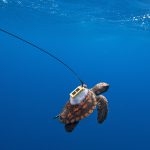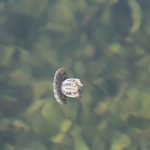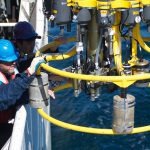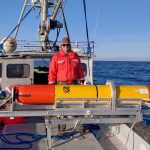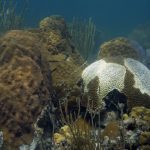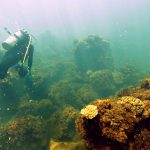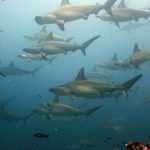Scientists studying coral reefs in volcanically acidified water of the southwestern Pacific Ocean measured a net loss of coral reef skeletons due to increased bio-erosion, according to new research by NOAA, the University of Miami Rosenstiel School’s Cooperative Institute for Marine and Atmospheric Studies (CIMAS) and Australian scientists.
The study, published in the Proceedings of the Royal Society B, measured changes in the reef framework in several naturally high-carbon dioxide settings near Papua New Guinea. For the first time, scientists found increased activity of worms and other organisms that bore into the reef structure, resulting in a net loss of the framework that is the foundation of coral reef ecosystems.
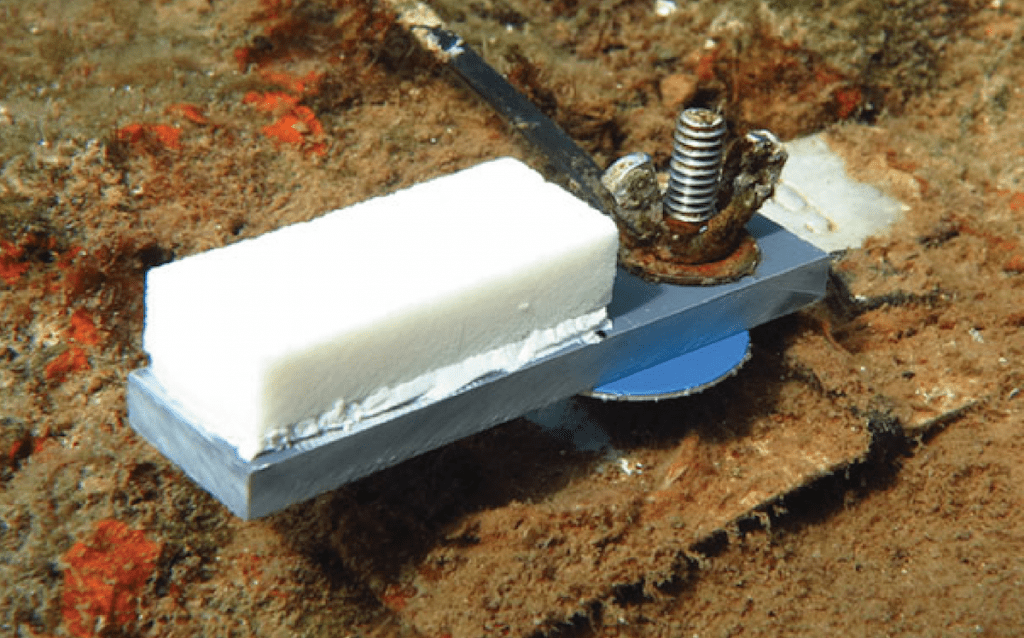
Coral skeleton bars before the 2-year field experiment.
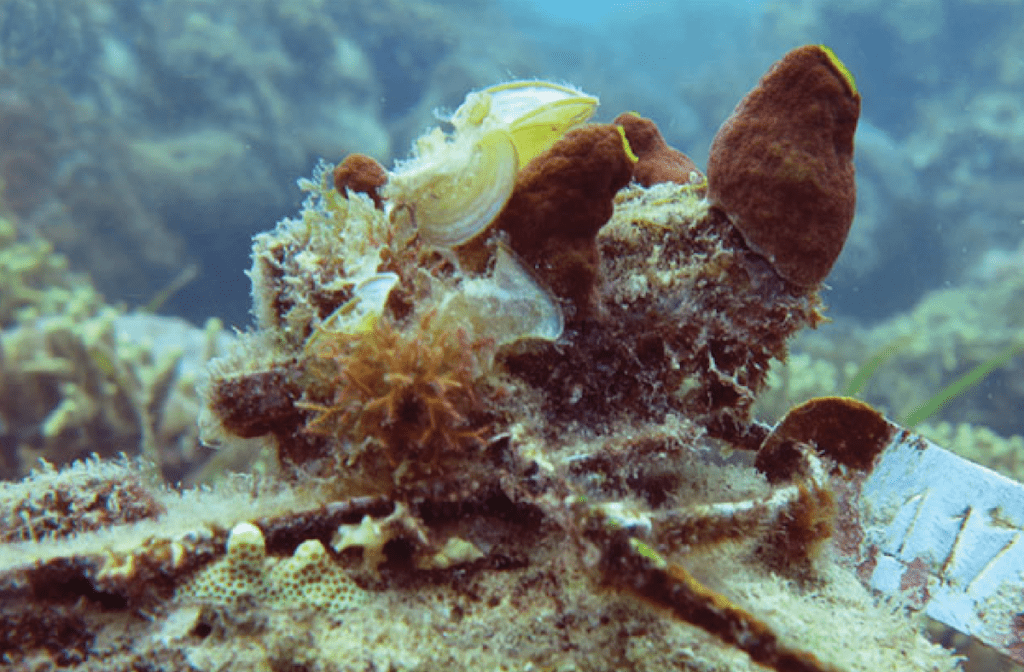
Coral skeleton bars after the 2-year field experiment, showing the accumulated organisms on the surface.
This two-year study used cutting edge technology to analyze the combined influences of organisms that add to and break down reef framework. Micro-CT scans and specialized software allowed scientists to peer inside the coral skeletons to see the boreholes left by worms. They created three-dimensional digital models to precisely measure the net difference between new coral material added by calcifying organisms and coral material lost through bio-erosion by worms and other organisms.
“This is the first study to piece together all of the coral reef ocean acidification processes, simultaneously looking at the different organisms that grow and erode reef habitats, and their net effects on one another over time,” said Ian Enochs, a coral ecologist at CIMAS and NOAA’s Atlantic Oceanographic and Meteorological Laboratory and lead author of the study. “This demonstrates that ocean acidification is a two-front assault on coral reefs, simultaneously slowing the growth of skeleton, and speeding up the rate at which old reef habitats are eroded.” This research was funded by NOAA’s Ocean Acidification Program and Coral Reef Conservation Program, as well as the Great Barrier Reef Foundation’s “Resilient Coral Reefs Successfully Adaption to Climate Change” research and development program in collaboration with the Australian Institute of Marine Science.
See the 3-d rendering
